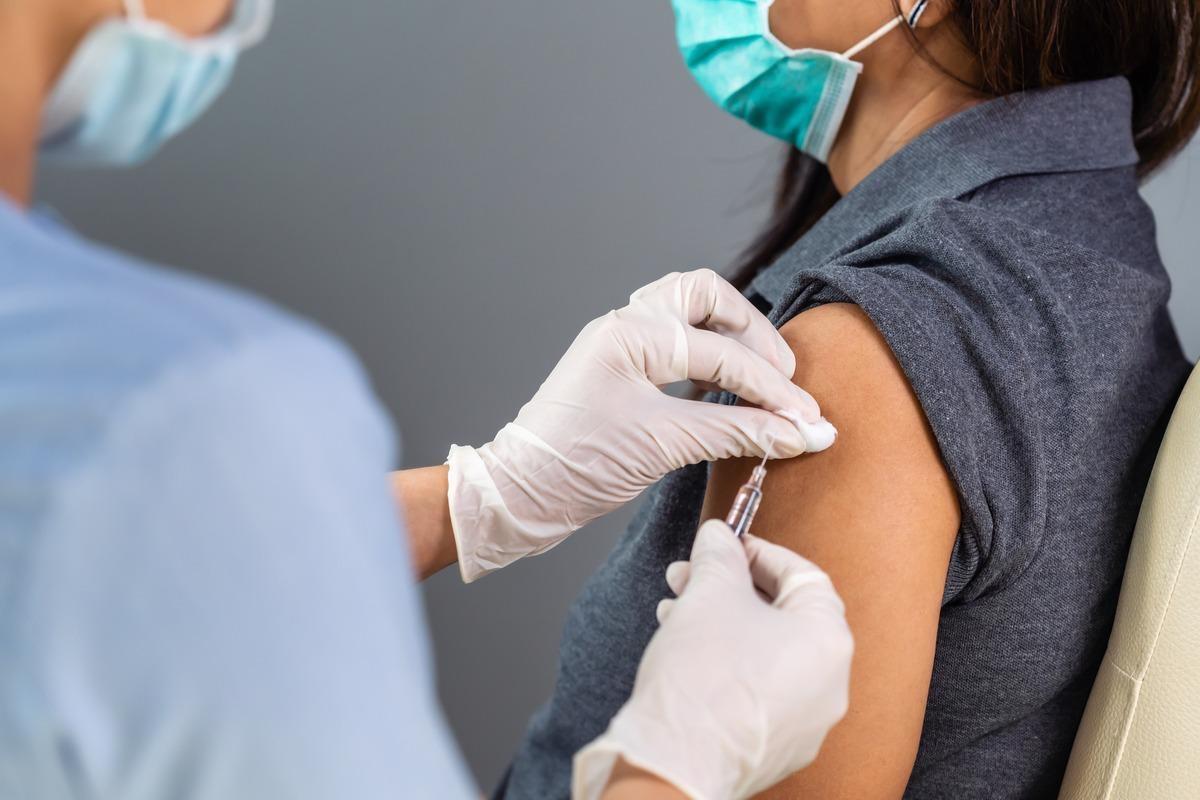Study investigates anti-SARS-CoV-2 antibody levels following Pfizer vaccine primary and booster regimens

A recent article posted to the Research Square* preprint server presented the differences among total anti-severe acute respiratory syndrome coronavirus 2 (SARS-CoV-2) antibodies (Abs) following SARS-CoV-2 Pfizer primary and booster vaccinations.

Background
Currently existing data shows that no known vaccine is fully effective against infectious illnesses, including those generated against SARS-CoV-2 infection. The reasons for the failure to achieve global herd immunity against coronavirus disease 2019 (COVID-19) include: 1) low compliance to vaccination, 2) emergence of heavily mutated SARS-CoV-2 variants, and 3) waning of vaccine efficacy over time. Moreover, variations are seen in the vaccine-induced immune response in the presence of COVID-19.
Hence, epidemiological and experimental studies are required to precisely identify and assess the influence of the several elements that may contribute to vaccination efficacy deteriorations with time. This will lead to the establishment of appropriate and timely methods to 1) restrict SARS-CoV-2 transmission, 2) avoid or minimize the likelihood of developing severe SARS-CoV-2 infection, and 3) curb the emergence of novel SARS-CoV-2 variants.
About the study
In the present serosurveillance investigation, the scientists interrogated the variance of total anti-SARS-CoV-2 Abs in 925 healthcare professionals who received primary BNT162b2 (Pfizer) immunization and homologous boosting. These study volunteers were from the Pederzoli Hospital, Peschiera del Garda, Italy.
The included participants received a two-dose regimen of COVID-19 BNT162b2 vaccine (primary vaccination) and a single dose of BNT162b2 boosting (homologous boosting). In addition, the subjects received the booster vaccination more than eight months following the primary BNT162b2 vaccination schedule. The participants submitted informed consent before enrollment in the study.
Throughout the study, nucleic acid amplification tests (NAAT) were conducted every two to four weeks for diagnosing SARS-CoV-2 infections using the Altona Diagnostics RealStar SARS-CoV-2 reverse transcription-polymerase chain reaction (RT-PCR) kit or the Seegene Allplex SARS-CoV-2 assay. Blood samples were procured 1) before the initial and second dose vaccination, 2) at one, three, and six months following the second dose, and 3) before and one month following the vaccine booster.
The Roche Elecsys anti-SARS-CoV-2 spike (S) chemiluminescent immunoassay was used to measure total anti-SARS-CoV-2 neutralizing Abs. In line with previous research, a total anti-SARS-CoV-2 Ab concentration of 656 kBAU/L was considered predictive of 80% or more protection against severe or modest SARS-CoV-2 infection. In addition, inter-group comparisons were conducted using the Mann-Whitney test.
Results
The results showed that among the initial 925 subjects, 401 were lost during the follow-up period. Of the 524 participants, 65.3% were females, and the median age of the study population was 46 years. Nearly 65.1% of participants were SARS-CoV-2 seronegative before vaccination (baseline) and constantly tested COVID-19-negative ("N/N").
More than 16% of the subjects were SARS-CoV-2 seronegative at baseline yet became COVID-19-positive ("N/P") following booster vaccination. On the contrary, over 18% of healthcare workers were SARS-CoV-2 seropositive before vaccination and consistently tested COVID-19-negative ("P/N") thereafter. The individuals in the N/N group were slightly younger than subjects in the other two groups, but the gender ratio was comparable in all three groups.
The total anti-SARS-CoV-2 S Abs trend was similar across all cohorts throughout the study. Nevertheless, the P/N group had higher values than the other two groups until they received the BNT162b2 booster dose, whereby the anti-SARS-CoV-2 levels in all cohorts were similar. There were no significant changes in total anti-SARS-CoV-2 S Abs between the N/N and N/P cohorts even one month following the booster dose.
In detail, after the Pfizer booster dose, the rate of participants with protective Ab levels increased to 100% across all cohorts. The proportion of subjects with total serum anti-SARS-CoV-2 S Abs in the N/N and N/P groups elevated from zero to 82-84%, yet these values gradually dropped to 32-35% until receiving booster vaccination. However, after the booster dose, the rate hiked in both cohorts to 100%. Contrastingly, the rate of P/N participants with protective total anti-SARS-CoV-2 S Abs was 7% at baseline, then maintained consistently over 88% throughout the succeeding time points, and rose to 100% after receiving the booster vaccination dose.
Conclusions
On the whole, the study findings impart crucial information on SARS-CoV-2 infection and COVID-19 vaccination. These include SARS-CoV-2 infection after booster vaccination did not substantially enhance the anti-SARS-CoV-2 Ab titers. However, baseline seropositivity was linked with a more prominent humoral immune response following initial vaccination than those without COVID-19 history. Thus, these findings could assist in prioritizing booster vaccination for the SARS-CoV-2 seronegative people.
Additionally, the study depicted that the COVID-19 booster vaccination significantly hiked the total anti-SARS-CoV-2 S Ab titers across all participants. This observation was congruent with the two prior hypotheses.
*Important notice
Preprints with Research Square publish preliminary scientific reports that are not peer-reviewed and, therefore, should not be regarded as conclusive, guide clinical practice/health-related behavior, or treated as established information.
- Gian Luca Salvagno, Brandon M. Henry, Laura Pighi et al. (2022). Variation of total anti-SARS-CoV-2 antibodies after primary BNT162b2 vaccination and homologous booster. Research Square. doi: https://doi.org/10.21203/rs.3.rs-1476525/v1 https://www.researchsquare.com/article/rs-1476525/v1
Posted in: Medical Research News | Disease/Infection News
Tags: Antibodies, Antibody, Assay, Blood, Coronavirus, Coronavirus Disease COVID-19, covid-19, Diagnostics, Efficacy, Healthcare, Homologous, Hospital, Immune Response, immunity, Immunization, Immunoassay, Nucleic Acid, Polymerase, Polymerase Chain Reaction, Research, Respiratory, SARS, SARS-CoV-2, Severe Acute Respiratory, Severe Acute Respiratory Syndrome, Syndrome, Transcription, Vaccine

Written by
Shanet Susan Alex
Shanet Susan Alex, a medical writer, based in Kerala, India, is a Doctor of Pharmacy graduate from Kerala University of Health Sciences. Her academic background is in clinical pharmacy and research, and she is passionate about medical writing. Shanet has published papers in the International Journal of Medical Science and Current Research (IJMSCR), the International Journal of Pharmacy (IJP), and the International Journal of Medical Science and Applied Research (IJMSAR). Apart from work, she enjoys listening to music and watching movies.
Source: Read Full Article